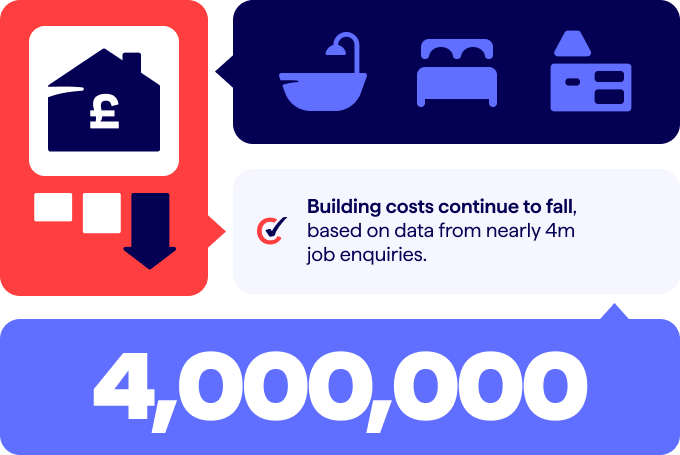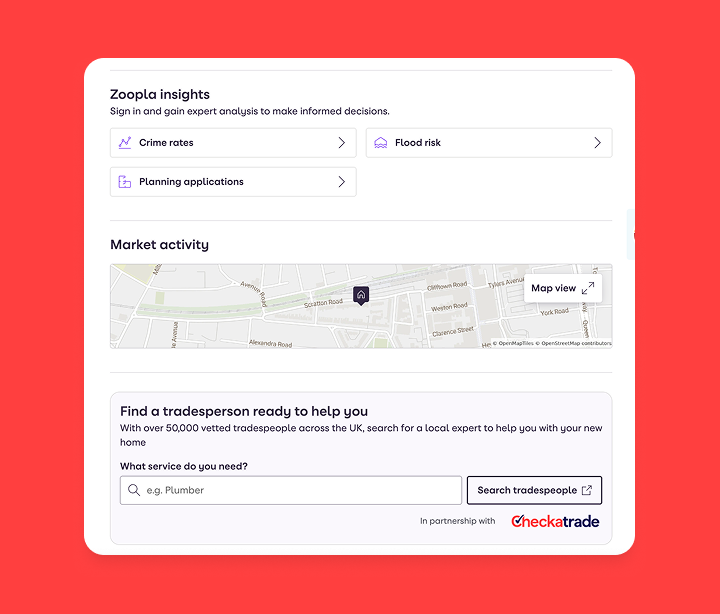Blog>News>Government unveils plans to ease loft extension rules
Last updated: 12 December 2024
Government unveils plans to ease loft extension rules
As part of the government's commitment to 'get Britain building again', it's announced changes to local planning committees to tackle the housing crisis. But what will it mean for homeowners, and for trades?

The government has announced changes to the National Planning Policy Framework (NPPF) as part of its plans to tackle the UK's housing crisis.
The reforms focus on planning rules, particularly those surrounding loft conversions and building extra storeys.
Planning decisions are set to be fast-tracked in a sweeping overhaul of local planning committees
The government aims to streamline the planning process and speed up building to help 'get Britain building' and meet its 1.5 million homes target
This is part of new government measures to tackle chronic uncertainty and damaging delays within the existing planning process that act as a drag anchor on building and economic growth (Gov.uk)
What are the current rules on loft conversions?
The process of applying for planning permission can be long and drawn out, but fortunately, it's not always needed for a loft conversion.
As long as your plans meet specific limits and conditions, converting your home's loft is considered permitted development rights (PDR) - and planning permission is not usually needed. For example:
The total area of the additional space cannot exceed 50m³ (40m³ for terraced houses) and cannot extend higher than the current highest point of the roof
The building cannot contain one or more flats
It must not have already had additional storeys added to it under PDR
The loft conversion must not exceed the height of the existing roof
Materials must be similar in appearance to the existing house
Take a look at our article on loft conversion planning permission for a full list of the PDR guidelines and an overview of the process.
What the new loft extension rules mean for homeowners
Under the new rules, homeowners will be able to build loft extensions and add extra storeys more easily, giving them greater flexibility to maximise space in their property.
Councils will no longer be able to stop upward extensions for being too high, however, all extensions must complement the "form" of the neighbouring properties and the "overall street scene", and be "well designed" and any developments must "maintain safe access and egress for occupiers".
Homeowners will also be able to install not only mansard roofs but all types of upward extensions.
How will the government's loft extension rules affect tradespeople?
In the words of Deputy Prime Minister, Angela Rayner, the plans will, "accelerate building, get spades in the ground, and deliver the change communities need."
Good quality schemes that are aligned with already agreed local development plans will be approved in a timely manner. In practice, this should mean:
Fewer delays in the planning process to avoid wasting time and resources
Better decision-making in the system to tackle chronic uncertainty
More opportunities for tradespeople to install mansard roofs
Your guide to loft conversion planning
Keen to expand your home by going into the loft? The first step is loft conversion planning. Here's all you need to know.
Jambu Palaniappan, CEO at Checkatrade, said:
"The proposed changes to the National Planning Policy Framework could deliver significant, immediate advantages to both consumers and tradespeople.
For consumers facing space constraints, these reforms will provide a more affordable and accessible alternative to costly home extensions. At the same time, tradespeople will benefit from more work and streamlined processes, enabling them to complete projects more efficiently and with fewer administrative hurdles. This is a development that we at Checkatrade wholeheartedly welcome.
However, as these relaxed regulations come into effect, it is crucial that consumers maintain vigilance when selecting tradespeople.
Despite the allure of readily available services and low prices, it’s essential to prioritise quality over convenience. This is particularly key given that Checkatrade rejects more trades in the roofing and building sectors than in any other, which highlights the risk that some unscrupulous tradespeople may seek to exploit the changes for short-term gain. Homeowners must remain cautious, ensuring they choose reputable professionals who deliver high standards of workmanship and reliability."
Loft conversion companies near me
A loft conversion can be a great way to increase your home’s usable footprint – whether you plan to create an extra bedroom, a home office, or even treat yourself to a home cinema! Here, we’ll delve into everything to do with loft conversion companies near you, from how to find one to what they tend
Find a loft extension specialist near you
If you're considering a loft conversion, there's never been a better time. With the government plans to ease the rules on loft extensions, your project could be up and running before you know it.
A loft conversion is a great way to add extra space to your home - it can also increase the value of your property
Loft conversion coststypically start around £27,500 and venture up to around£75,000+, depending on the type of project you plan to undertake
To start the ball rolling, enter your postcode below to find approved loft conversion specialists near you. They'll be able to discuss your plans, assess your home's suitability for a loft conversion, and provide an accurate quote for the work.
See the tradespeople we've checked and recommend for your job
Contact or pay a trade through Checkatrade and you’re covered by our 12-month guarantee of up to £1,000*

FAQs
What are the legal requirements for a loft conversion?
Currently, you'll need to apply for planning permission for a loft conversion, unless your plans fall within permitted development rights.
Regardless, you must always adhere to building regulations when you convert a loft. This is different from planning permission.
Building regs cover things like the structure and strength of the floor, fire safety, and the insulation levels. In other words, they make sure the new area is safe and habitable.
What is the 10-year rule for a loft conversion?
The 10-year rule is a UK planning regulation that protects homeowners who completed a loft conversion without the required planning permission. After 10 years, the local authority cannot force the homeowner to reverse the work or dismantle the conversion.
It is always recommended to check whether planning permission is needed via your local authority before you begin work.
Can my neighbour stop me from doing a loft conversion?
Your neighbour won’t usually be able to stop you from doing a loft conversion. However, if your neighbour refuses to agree to your Party Wall Notice, a dispute will begin and surveyors will need to be hired to help you come to an agreement. Their role is to settle any disagreements and help you find an amicable way forward.

On Checkatrade, you'll only find trades who meet our high standards and pass up to 12 checks.
See the tradespeople we've checked and recommend for your job




